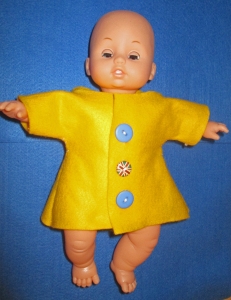When I attended the consultant’s breast cancer update the other night, one of the surgeons was talking about bc in the under-50s. She said that one of the side-effects of having cancer when you are pre-menopausal is depression.
Obviously everyone who has had cancer is going to be prone to depression, but it seems to be more of a problem in younger patients. I would guess that some of the reasons are related to shock: thinking that you are ‘too young’ to get ill, and suddenly finding out that you are, in fact, mortal; and fertility. Women post-menopause hopefully realise that their childbearing days are behind them. However, a younger woman may get a cancer diagnosis when she is single and hoping to meet the right man one day; or in a new-ish relationship or not ready for kids yet; or has been trying for a while but has no kids; or even pregnant.
One of the many joys of chemo is that it can damage your ovaries. I was asked on two different occasions if my family was complete. If not, I would have been quickly referred to a fertility specialst who would probably have advised freezing my eggs, or (for those in a relationship), embryos. These can be safely kept for up to 10 years. Some women will be able to conceieve naturally a few years post-chemo, but it’s a risk. I can’t imagine how difficult it must be to not only be faced with your own mortality, but with the thought that you may never have those beautiful children that you had hoped to have one day. Or to think that your unborn child may be harmed while you undergo treatment. Horrible. Thank goodness for medical science to help ease the pain a little.
There is something else with some cancers, in that if your cancer is oestrogen postive, having (working) ovaries may incease your risk of cancer returning. This is why people who have the bc gene (BRCA1 or BRCA2), like Angelina Jolie does, choose to have their ovaries removed as well as having a double mastectomy. This means immediate menopause. Being pregnant will increase the amount of oestrogen flying around your body, which means an increased risk of cancer returning in women with oestrogen positive cancers. My cancer is oestrogen positive. So please don’t suggest that I ever have another child.
So you can see that cancer in younger women is especially unkind. I am not surprised that they are more prone to depression.
One of the good things about having cancer is that you get a heck of a lot of sympathy. Everyone knows someone who has had cancer, and it’s always in the news, and everyone is kind. That really helps.
I am going to contrast this with having an ilness such as depression, anxiety or PTSD. Everyone knows someone with one or more of these conditions. It does get mentioned a lot in the media. But for some inexplicable reason, many people who have it do not get much sympathy at all.
Imagine being so traumatised by something that has happened to you that you can’t sleep at night? Or having anxiety so badly, that leaving the house, or making a phone call can leave you shaking with fear? Or believing that you are worthless, no-one loves you, and everyone will make fun of you if you admit that you have depression? And then imagine a friend or someone on telly, making fun of a person with a mental health condition. You immediately feel even more cut-off, outcast and misunderstood than you did before. You are afraid to tell anyone that you are struggling. Your work and family life starts to sufffer.
Not nice is it?
I had post-natal depression for about 18 months. It’s hard for me to remember much during that time, as I was not really me. I do know that I believed that no-one actually liked me; I had no friends; and I was a useless mother. I did get a lot of support and care from family and a few close friends, and I had my faith. But what would have happened if I didn’t?
If you know someone who has a mental illness, please do not tell them to ‘cheer up’ or insinuate that their illness is not as bad as someone with a visible sickness. Please be kind to them. Please be patient. Please don’t avoid them – it’s not catching.
I have stage 3 breast cancer. I had 6 rounds of chemo. I had a double mastectomy with left-sided lymph node removal. I may need radiotherapy on my left side, which gives an increased risk of heart disease. Cancer is not a barrel of laughs. But I am still me, I know that I am still loved, and my mind and spirit are as strong and healthy as ever.
In my experience, depression is worse than cancer. It was much more painful, harmful to my family, and all-round nastier than cancer ever was. So please consider making a hot meal for a friend who has anxiety. Consider running a marathon to raise funds for a mental health charity. Be kind to someone who has depression in exactly the same way that you have been kind to me.








